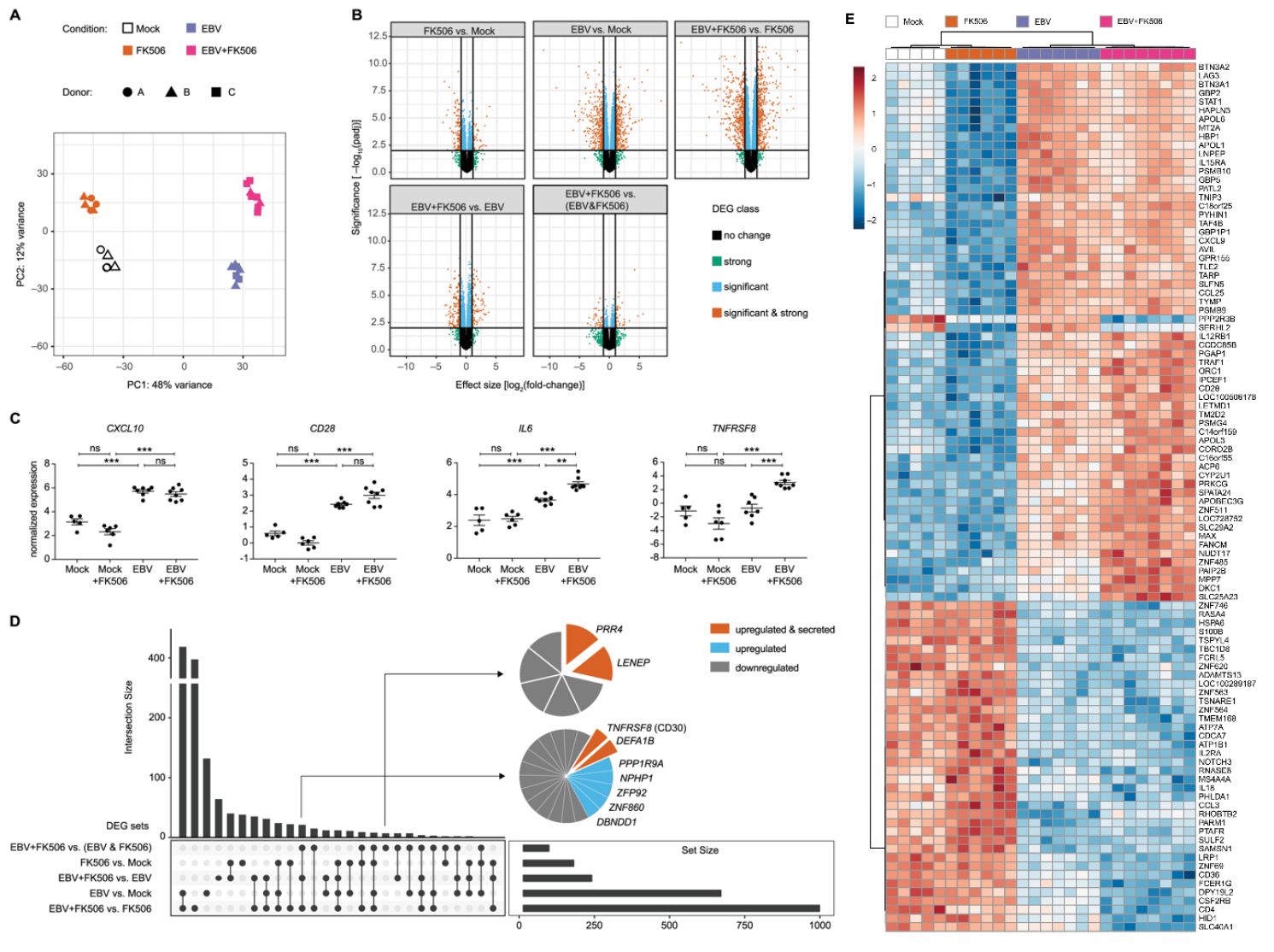Biostatistics

Design and analysis of omics-scale experiments in biomedical research and development demands sophisticated and efficient methods tailored to specific research questions. We support researchers in the causal interpretation of exploratory studies and provide expertise in predictive modeling and artificial intelligence for clinical diagnostics.
Post-transplant lymphoproliferative disorder (PTLD) is a potentially fatal complication after organ transplantation frequently associated with the Epstein- Barr virus (EBV). Immunosuppressive treatment is thought to allow the reactivation of latent viral infections, including the expansion of EBV-infected B cells. In this study, the effect of FK506-mediated immunosuppression on EBV-associated PTLD development in a humanized mouse model was assessed and its use to identify candidate biomarkers of EBV associated disease was investigated.

Utilizing gene expression profiling, candidate biomarkers of reduced EBV-specific immune control were identified, two of which, PRR4 and sCD30, were associated with high serum levels in mice that had developed tumors. sCD30 was also elevated in patients with EBV-PTLD. In conclusion, humanized mice hold promise to become a predictive early safety model for immunomodulatory therapies and for the identification of biomarkers for PTLD.
This work has been published in external pagePLOS Pathogenscall_made.
Types of services
We provide statistical consulting to ensure the right data and enough data are recorded to answer a scientific question. We help to condense difficult scientific questions into a clear, precise, specific mathematical language. We place particular emphasis on transparency and reproducibility in research.
We support clinical trials in statistical aspects at all stages from study conception to publication. In particular, we contribute to study protocols for Ethics committee submissions and grant applications, perform sample size determinations and power estimations, write statistical analysis plans, conduct data analyses, report trial results according to relevant guidelines, and assist with result interpretation and publication. We work in close collaboration with dTIP, the clinical trial platform at ETH.
We perform statistical analyses for any omics data (genomics, transcriptomics, proteomics, metagenomics, lipidomics, metabolomics, …) from any platform (micro-array, sequencing, mass-spectrometry, …). Multi-dimensional prediction from multiple omics data and modeling along distinct conditions or trajectories is our specialty.
We are using network analysis and genesets specific for diseases, pathways, drug mode of action, microbial identity, and more to lift raw omics results to a higher level. This facilitates a deeper understanding of disease-causing events, biological processes, structure activity relationships, or interaction with the microbiome.
We provide statistical consulting and analysis of high-throughput compound screening campaigns and pharmacological or toxicological activity profiling. We support primarily the TDU, but we offer our services also to academic groups at ETH and elsewhere, and to customers from industry.
We are utilizing state-of-the-art methods of dimension reduction, denoising to decipher the complex, heterogenous and sometimes multi-modal data from single-cell experiments, for instance, (gene-, protein-, analyte-) marker discovery, celltype classification, trajectory reconstruction and differential subpopulation analysis.
As we are routinely working with heterogeneous, complex, high-dimensional real-world data, our toolbox for predictive modeling ranges from well-interpretable linear models, like LASSO, more flexible classic machine learning, like random forests, to cutting edge deep learning algorithms, like convolutional neural networks.
Request a service
Please contact us by or phone and we will arrange a meeting to explore, how we can best support your project.
